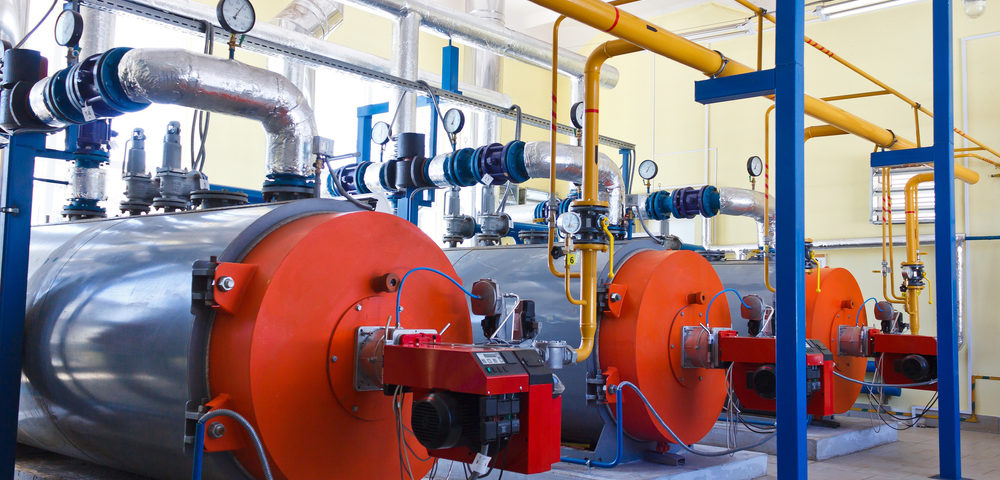Boiler selection plays an important role in maximizing the overall efficiency of an industrial facility. When choosing an industrial boiler, its important to consider the specific requirements of the application it will be used in, as these requirements will dictate 1) the type/design of boiler that is appropriate, 2) the fuel/heat source that should be used, and 3) the combustion technology that is optimal given heating needs. All three of these factors are discussed more in depth below.
1. Boiler Design / Type
Firetube and watertube are the two most common types of boilers used in industrial facilities today. Firetube boilers pass hot gases from a heat source via tubes that run through a water-filled shell, which turns the water into steam. Firetube boilers have a low capital cost and are generally easy to operate. However, they have relatively small steam capacities.
Watertube boilers, on the other hand, pass water through their tubes while being heated by hot gases on the shell side. Although they typically exhibit higher thermal efficiencies than firetube boilers, they are more costly and difficult to manufacture. Watertube boilers are most often used to produce high-pressure steam and are widely seen in applications that require high capacities.
2. Fuel/Heat Source
The type of fuel used to generate heat is also important to consider when selecting a boiler. Some of the most common fuel types include:
Coal – Coal boilers are typically associated with higher emissions and often require costly scrubbers and electrostatic precipitators to remove harmful gases and fly ash from flue gas.
Natural gas – Natural gas is cleaner than other forms of energy, highly combustible, and has high energy-to-heat ratio. It is also relatively safe to store and provides distinct environmental advantages over other fuel sources.
Biomass – Biomass boilers are used extensively in the sugar processing and pulp and paper industries. They often use the by-products of facility processes as fuel and are most economical in facilities where biomass fuel is cheaply and readily available.
3. Combustion Technology
Industrial boilers that burn coal, biomass or petrochemical fluids can make use of different combustion technologies. A stoker, for instance, distributes coal evenly through the burner on a moving grate. Fluidized bed technology, on the other hand, bubbles jets of air through a bed of pulverized coal or biomass, providing the oxygen required for combustion. Thermic fluid heaters are another type of technology that use petroleum-based fluids circulating in a closed loop system as a heat source.
Each of these three technologies carries implications for thermal efficiency. Boiler selection should be based on this, together with the associated capital and operating costs. At Honiron Manufacturing, we complete maintenance, repairs or modifications that can help reduce costly downtime caused by boiler equipment breakdowns.
